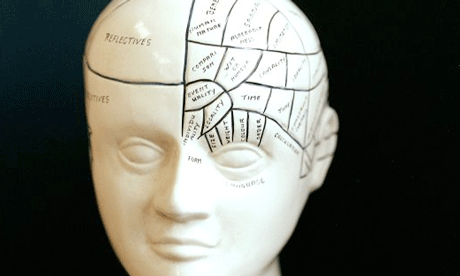
Why psychological knowledge is essential to success with People Analytics
I am often asked why I rate psychological skills so essential to a great People Analytics team. Indeed, why I rate them higher than statistical skills, when I look at core skills in a SuperHero Team.
Let me give an example:
Let's say that you produce an algorithm/robot/AI, which is perfect for recruitment; it can predict the best possible match between a candidate and a position including all elements of team composition, company culture and job description. The algorithm is bias-free, cheap to use and based upon company specific data, meaning that all sorts of BigData has been collected, analysed and optimized to predict match and success for your company. Not only that, it does not require any type of interaction with people. The candidate is sitting in front of a camera at home, and with use of face recognition abilities, optimised open-ended questions and random multiple choice questions in the interview can scan the candidate within 15 minutes, which reduces waste of time for the candidate and the company thus reducing the elusive time-to-fill KPI.
The situation is perfect; easy, cheap and accurate recruitment, which can be done at the convenience of the candidate.
None of this requires psychological skills, it can be done with great data, innovation and statistical nouns. So what is the problem?
To find a problem with the perfect algorithm described above, we need to visit a well-known finding within social psychology; effort justification, which states that we tend to attribute a higher value to an outcome, when we have gone through a great deal of effort into achieving. Effort justification is based on the classic work by Leon Festinger on Cognitive Dissonance, which states that when people's behaviours and beliefs don't align, they experience discomfort. To relieve that discomfort, people often change their beliefs to match their behaviour. The theory of effort justification was formulated though the research of Elliot Aronson and Judson Mills, who concluded that "persons who go through a great deal of trouble or pain to attain something tend to value it more highly than persons who attain the same thing with a minimum of effort". Interesting. In their research (dating back from 1959) they saw that their participants rated the groups they joined more interesting and valuable if the access to the group was harder even though the groups were identical.
A good example outside of organizational life is probably during "Hell Week" held each year on college campuses across US. Here young students make their fraternity pledges through a variety of activities some of which includes social embarrassment and sometimes physical pain. Why do young people go through such a recruitment processes? Simply because that the enduring effort makes it so much more desirable to enter.
To look within the corporate world, just look at the alternative route taken by Zappos who invented something called "The Offer", which is where they say to their newest employees “If you quit today, we will pay you for the amount of time you’ve worked, plus we will offer you a $1,000 bonus.” Zappos actually bribes its new employees to quit! Why does that work? Simply because people who stay have gone through an extra level of 'pain' (by giving up $1,000) and hence value Zappos higher.
I am not saying that you should not build the perfect algorithm. In fact, I am saying that you should. But instead of just releasing it as an easy, convenient and efficient way to hire, I am suggesting that the true value of the algorithm is only realised with the aid of (social) psychology insights which states that you should find ways to make it really hard to be recruited.
How can you make it feel like it is really hard to be recruited if you have the perfect algorithm where you can make the best possible decision within minutes? I don't know and would love to hear your view, but my immediate answer with to use an assessment center, where more people are gathered and competing for the same jobs with an algorithm ultimately deciding the outcome. Maybe that would work? Or perhaps used more innovative ways as Zappos did. In any case, so solve this riddle requires more that data knowledge and is why your analytics team needs to be multi-talented.
References:
- Aronson and Mills (1959) The effect of severity of initiation on liking for a group, Journal of Abnormal and Social Psychology, 59, 177-181.
- Festinger, L. (1957). A theory of cognitive dissonance. Evanston: Row, Peterson.
Professeure d'anglais
2yCompanies are wrongly relying on the assuption that AI is "perfect" and "bias-free". If you are setting up a ATS with your current workforce data and your workforce is not diverse (in all terms: race, thinking, education, disabilities, etc), how can organisations trust AI/machines to trust them fully to find the perfect candidate? AI is created by humans, and we humans are all biased. So, psychological expertise is necessary, yes, but also others inputs like Diversity consultants.
Business Administrator with Project Management Certification, Analytics training & B.A honours Degree in Public Relations with Information Technology.
3yInsightful thought provoking article. Artificial Intelligence is valuable. However there are human skills such as intuition and human emotions such as mutual bonding which can occur during the interview process. I believe a mix of both will be valuable. I also believe it can be beneficial to include a psychologist or a person with these skills to your recruitment team.
Executive & Bespoke Search for HR, Ed.Tech & HCM SaaS. People & Workforce Development Nerd 💟
5yInteresting read - still feel there is more work to be done to complement the use of AI in recruitment.
Thx, nice article. Also read: The psychology of people analytics (https://hrtrendinstitute.com/2017/03/28/the-psychology-of-people-analytics/)